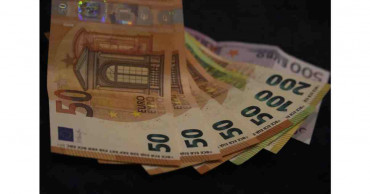euro area
Inflation hits record 8.9% in euro area, but economy grows
Inflation in the European countries using the euro currency shot up to another record in July, pushed by higher energy prices fueled by Russia’s war in Ukraine, but the economy still managed better-than-expected, if meager, growth in the second quarter.
Annual inflation in the eurozone’s 19 countries rose to 8.9% in July, an increase from 8.6% in June, according to numbers published Friday by the European Union statistics agency.
For months, inflation has been running at its highest levels since 1997, when record-keeping for the euro began, leading the European Central Bank to raise interest rates last week for the first time in 11 years and signal another boost in September.
Energy prices surged in July by 39.7%, only slightly lower than the previous month due to gas supply concerns. Prices for food, alcohol and tobacco rose by 9.8%, faster than the increase posted last month due to higher transport costs, shortages and uncertainty around Ukrainian supply.
“Another ugly inflation reading for July,” said Bert Colijn, senior eurozone economist for ING bank, adding that there was “no imminent sign of relief.”
Read: Asian shares mostly higher after rally on Wall Street
The eurozone’s economy, meanwhile, grew from April through June, expanding by 0.7% compared with the previous quarter, despite stagnation in Germany, Europe’s traditional economic engine. France avoided fears of a recession by posting modest 0.5% growth, while Italy and Spain exceeded expectations with 1% and 1.1% expansions, respectively.
Economists pointed to the rebound in tourism following the COVID-19 pandemic, with short-staffed airports and airlines packed this summer, leading to travel chaos.
With inflation continuing to rise higher than expected, analysts expect economic growth to be the last glimmer of good news, with inflation, rising interest rates and the worsening energy crisis expected to push the region into recession later this year.
“This is as likely to be as good as it will get for the eurozone for the foreseeable future,″ Andrew Kenningham, chief Europe economist for Capital Economics, wrote in an analyst note.
Europe’s growth contrasts with the United States, whose the economy has contracted for two straight quarters, raising fears of a recession with inflation at 40-year highs. But the job market is even stronger than before the COVID-19 pandemic, and most economists, including Federal Reserve Chair Jerome Powell, have said they don’t think the economy is in recession.
3 years ago

